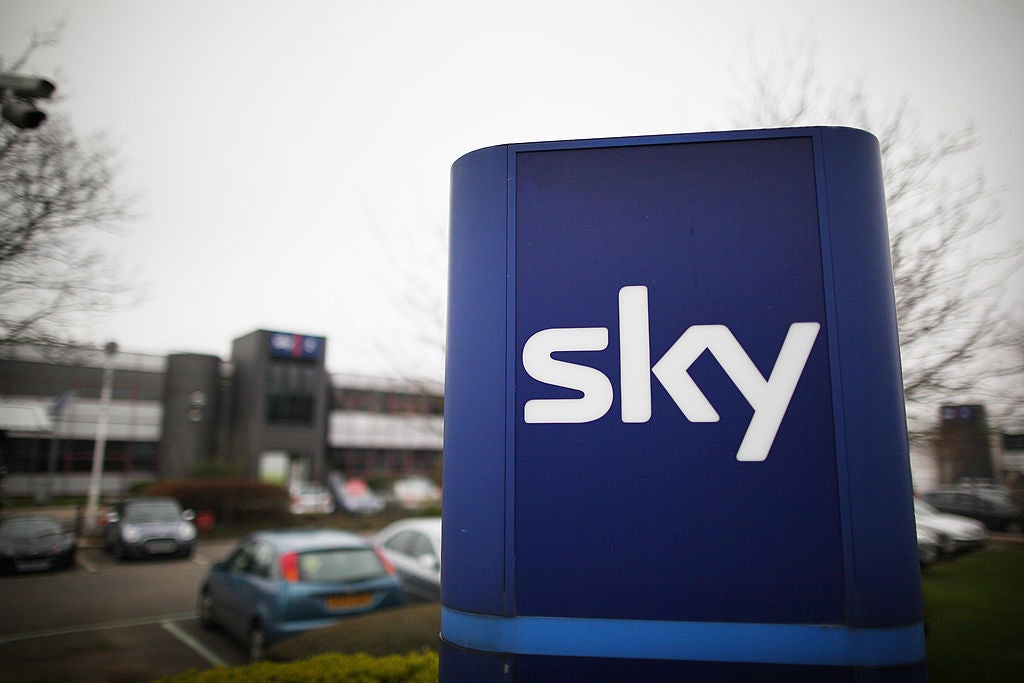Companies like Sky are badly governed because their investors allow it
Some of Britain's biggest money managers set a terrible example to the companies in which they invest on our behalf

Your support helps us to tell the story
This election is still a dead heat, according to most polls. In a fight with such wafer-thin margins, we need reporters on the ground talking to the people Trump and Harris are courting. Your support allows us to keep sending journalists to the story.
The Independent is trusted by 27 million Americans from across the entire political spectrum every month. Unlike many other quality news outlets, we choose not to lock you out of our reporting and analysis with paywalls. But quality journalism must still be paid for.
Help us keep bring these critical stories to light. Your support makes all the difference.
Under Britain’s system of corporate governance James Murdoch can be chief executive of a company (Fox) that is bidding for another company (Sky) that he is chairman of.
As I argued on Monday, the system of “comply or explain” that allows this to happen is badly flawed.
But what about the companies that comply, rather than explaining why they should’t have to (which usually amounts to their saying ‘because we don’t want to’).
According to the Institute of Directors they’re not doing much better. Oliver Parry, its head of corporate governance, argues that they have “developed a system whereby governance is seen in pure compliance terms”.
In other words, they obey the forms and they tick the boxes, and they use that as a substitute for meaningful engageemnt with their investors. No wonder things go wrong so regularly.
Mr Parry continues: “FTSE companies simply produce standard boilerplate statements year on year which tell investors little. This is as far removed as possible from the intentions of Cadbury’s landmark report, which laid the foundations for a more practical approach to governance.”
Pirc, which advisors institutional investors on voting decisions, made that its quote of the week going into the festive season.
Small wonder. I’ve spend enough time dealing with FTSE 100 companies, and the people paid to represent them, to have every sympathy with that view.
But what to do about it? Mr Parry and I diverge on one point. He’s not sure more rules is the best way to proceed, because he thinks that will just create more bureaucracy. I would get rid of the explain part of comply or explain right now. There’s not much point defining best practice if you allow people to flout it if only they provide some half cocked explanation as to why.
As an alternative to more rules, however, the IoD has produced a league table based on various measurable indictators combined with a survey of stakeholders. Ranked at the top as Britain's best governed company is, um, British American Tobacco. That's surely a case of good governance, bad product.
Unilever, which makes consumer products such as Marmite, is in second and Diageo, the drinks group, is third. At the bottom? Tesco. Which may be as a result of past sins. Sky is at number 90, which won’t surprise anyone.
Now, if the IoD is right, and big British companies aren’t very good at governance and engagement, part of the reason is that big institutional shareholders have allowed them to be that way. They only very rarely vote against boards when they have the chance, and then only when those boards behave absolutely atrociously. They far too readily accept companies' excuses in return for a spot of lunch. They regularly fail to get their points across.
Is that any wonder if you consider where the IoD ranks some of Britain's biggest fund managers?
Prudential, the owner of M&G Asset Management, crawls in at number 87. City blue blood Schroders isn't much better. It is ranked number 81.
If they’re not themselves able to set an example in the way they are governed, why should the companies in which they invest on our behalf bother?
Perhaps we need to be asking harder questions of these two, and others like them. Perhaps the IoD, or a body like it, should consider ranking institutional fund managers on how well they engage with the companies in which they invest and on their voting behaviours.
It would certainly be instructive to see where M&G and Schroders would end up ranked after such an exercise. So, who fancies trying it?
Subscribe to Independent Premium to bookmark this article
Want to bookmark your favourite articles and stories to read or reference later? Start your Independent Premium subscription today.
Join our commenting forum
Join thought-provoking conversations, follow other Independent readers and see their replies
Comments